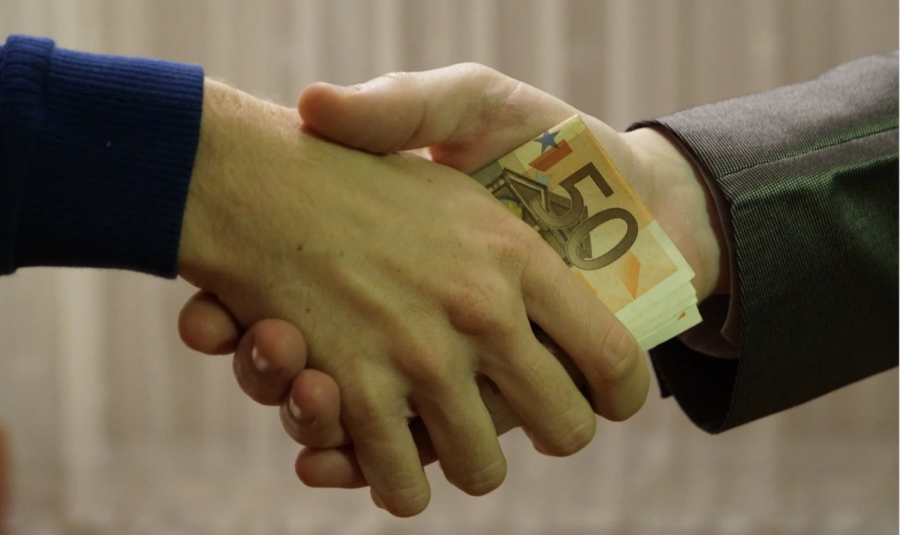Stupid Government Subsidies
Concentrated Benefit vs. Diffuse Cost
Taxpayers may not realize it, but illogical government subsidies are causing severe economic consequences.
May 28, 2020

The following is an op-ed submitted by senior Will Pattie. Want to share on opinion of your own? Send an op-ed to [email protected].
Suppose the government creates a new subsidy called the William Pattie subsidy. This subsidy would be a direct payment of $1,000,000 from the Federal Government to anyone who happens to have the birth name “William Pattie.”
Since citizens named “William Pattie” have no special need for this subsidy and because the basis for it is both arbitrary and illogical, it is ultimately a waste of taxpayer dollars and should be done away with. However, since the average taxpayer contributes less than a penny to funding this subsidy, it is unlikely that any of them would lose sleep over this blatant waste of their money.
This disparity in interest between the “William Patties” and the taxpayers creates a problem. If this subsidy were on the chopping block, as it clearly should be, the Will Patties of the world, would take their arms to pester their senators and representatives incessantly to keep it in place, while the penny-paying taxpayers would be unlikely to lift a finger against it. It would be political suicide for a politician to come forward against the subsidy, as they would be met with smear ads funded by the William Patties of America. Thus, despite its aggressive unreasonableness, the subsidy stays in place.
This situation is known as “Concentrated Benefit vs Diffuse Cost.” Coined by economist Mancur Olson Jr, the term describes a situation where a small group of people benefit greatly from a law and will do anything to keep it in place while the many many people who share the cost are unlikely to care. Situations like these come up all the time in American politics in the form of tax breaks, loopholes, and direct cash payments, but the diffuse costs keep most voters from noticing or caring.
Take the example of coal. Study after study has concluded that coal is by far the objectively worst way to generate power. It lowers air quality which leads to lung problems, requires miners to risk their lives each and every day, releases emissions just as radioactive, far more toxic, and infinitely more responsible for climate change than those released by nuclear power plants, and is now an even more expensive way to generate energy than wind and non-rooftop solar. The general consensus among the US is that we should immediately try to lower our dependence on this harmful method of generating power to save our people and our planet.
Despite this, however, the federal government gives $17.1 billion in outdated subsidies to the already-profitable coal industry every year.
How could these illogical and counter productive subsidies still exist in the face of overwhelming evidence against coal? The answer is similar to that of the William Pattie subsidy: the $17.1 billion cost is spread out among many people and costs the average taxpayer only $82 per year while the few beneficiaries of the coal subsidies share billions.
This interest disparity once again assures that the few beneficiaries of these coal subsidies will fight and lobby politicians to keep their precious money at the expense of the unknowing or uninterested taxpayer.
$82 per year is far from crippling, but as you start to count up other subsidies, that number increases very quickly. In 1978, research showed that burning ethanol released fewer harmful chemicals into the atmosphere, and so the government began subsidizing ethanol. Subsequent research showed, however, that if you include the costly and dirty creation of ethanol in addition to the lowered fuel efficiency as a result of including it in fuel, ethanol is a detriment to the environment.
Despite this new research, the corn-based ethanol subsidy still remains because it’s political suicide for any aspiring governor of Iowa or presidential candidate to argue against it, as the few farmers who benefit would turn on them in a heartbeat. This subsidy costs the government $10 billion, wasting another $48 per taxpayer.
Adding to the coal and ethanol subsidies the $4 billion spent on sugar, the $4.6 billion on oil, and the $25 billion on agriculture with the benefits tilted towards the largest farmers, and many billions more spent on gas and other industries, and you get a system that strips significant amounts of money from taxpayers every year without them even noticing, much less resisting it.
As long as wealthy elites continue to flock to Washington DC, politicians will continue to generate endless amounts of these grossly illogical subsidies.






